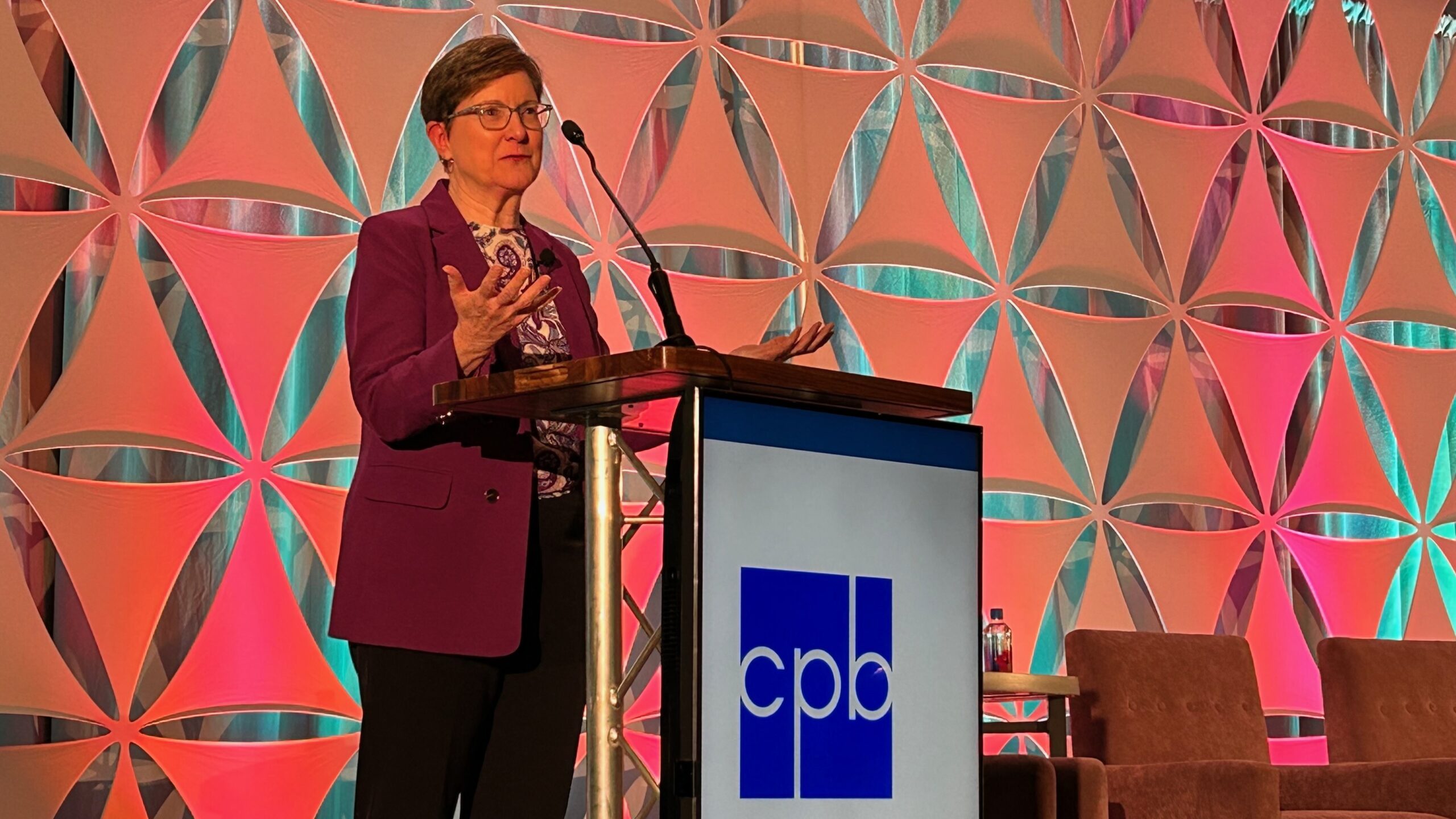What does it cost to air a Sunday Mass?
At WFUV-FM, a public radio station licensed to Fordham University in the Bronx, the 25-year-old studio soundboard needs to be replaced, and the tower and other transmission facilities could use a major overhaul as well.
General Manager Ralph Jennings says he’d like to get a grant from the Public Telecommunications Facilities Program (PTFP) to defray at least half of the estimated cost of $2.5 million to $3 million, but that he hasn’t bothered applying because PTFP, a Commerce Department grant program, has told him informally that his station is ineligible for federal funds.
The reason is an hour-long Roman Catholic Mass that WFUV has been broadcasting from Fordham’s campus chapel every Sunday for the last 42 years. Jennings estimates that the program has an audience of between 5,000 and 10,000 listeners, many of whom are shut-ins or others who can’t attend regular services.
Richard Harland, senior program officer at the PTFP, says it’s simply a matter of following the regulations that govern the distribution of federal funds. “No PTFP-funded equipment can ever be used for sectarian programming while it’s in the hands of the grant recipient,” he says. “It’s a First Amendment issue.”
Nevertheless, a number of other public radio stations routinely use federally financed equipment to broadcast religious programs as part of otherwise secular schedules, managers have told Current.
“A kneejerk reaction”
“It’s a strange policy,” says Jennings. “I understand the reasons behind it, [but] it seems like a kneejerk reaction to a lot of applications in the noncommercial band from Bible schools and seminaries and the like.”
As evidence that WFUV is a nonsectarian station, Jennings points to the facts that WFUV has been on the air since 1947, broadcasts 24 hours a day, is an American Public Radio affiliate and receives money from the CPB.
“It strikes me as odd,” he says, “that Fordham, as an independently accredited, secular institution, is eligible for federal educational money, state educational money” and CPB funds, but not PTFP funding.
According to Harland, CPB funds aren’t truly federal since the corporation is an independent nonprofit. Consequently, he figures, CPB is not bound to the same First Amendment standard as a federal government agency such as the PTFP. In addition, Harland notes that other federal funding programs are not used for equipment purchases, so their grants can be narrowly focused to avoid such conflicts.
Harland says that WFUV could qualify for PTFP funds by either discontinuing the Sunday mass broadcasts or by routing the remote signal from the church around any federally financed equipment.
Jennings doesn’t plan to cancel the Sunday broadcasts “in order to get government money.” The program “has developed a loyal and significant following, … and we feel obligated to continue to [broadcast] it, even though it means a great burden on us in terms of not being able to qualify for any of these government funds.”
Inconsistencies seen
Jennings claims that other stations have obtained PTFP funding for equipment upgrades, and yet regularly broadcast religious programs similar to WFUV’s. Harland says he is unaware of any cases of grants to stations carrying sectarian programs.
“We’ve gone out of our way to ensure that they won’t,” he says. “For example, at Abilene Christian in Texas, we put in place a community advisory committee whose charter required that they report annually whether the program was properly secular.”
But he conceded that once it gave grants the small agency could not actively monitor the content of programming.
A quick check of radio stations around the country indicates that the PTFP’s passive enforcement system has failed to detect that a number of public stations are using federally funded equipment to air religious programs.
- WESM, a small station on the University of Maryland’s Eastern Shore campus in Princess Anne, Md., received PTFP funds to help it get on the air five years ago. It plays several hours of gospel music each week and has a program called Today’s Church that combines inspirational music with pre-recorded sermons.
- WBUR, Boston University’s public radio station that serves the Boston area, received PTFP funds to upgrade its transmitter five years ago. It nonetheless broadcasts a one-hour “loosely Methodist” service from Marsh chapel every Sunday. Harland said he was unaware of any sectarian programming at WBUR.
- KPLU, a public radio station licensed to the Pacific Lutheran University in Tacoma, Wash., received PTFP funds to upgrade equipment several years ago. At the time, it aired two half-hour programs of Christian chorale music including a daily scripture reading.
A regulatory gray area
Jennings believes WFUV is being targeted because of the university’s well-known Jesuit connection. Harland admits that he broached the subject with Jennings as soon as the issue of PTFP funding came up: “I said [to Jennings], ‘Fordham’s a Jesuit school. Do you have any [sectarian] programming?’ ”
“I would think,” says Jennings, “that the PTFP could find some other means of separating stations who broadcast a significant public radio service–but may also serve the needs of religious groups–from those stations who have really taken a public radio license and converted it to a religious station.”
By not making the distinction, says Jennings, the PTFP has created a “gray area” that raises countless questions. “Can you broadcast gospel music?” asks Jennings. “What happens if you play Bach’s B Minor Mass? When is it a work of art, and when is it religious expression? Once you start that kind of debate, it never ends.”
The National Council of Churches’ Department of Communications adopted a resolution last February urging PTFP to let a station serve its listeners’ needs and interests in the context of “the broad cultural, spiritual, informational and entertainment needs of its service area.”







